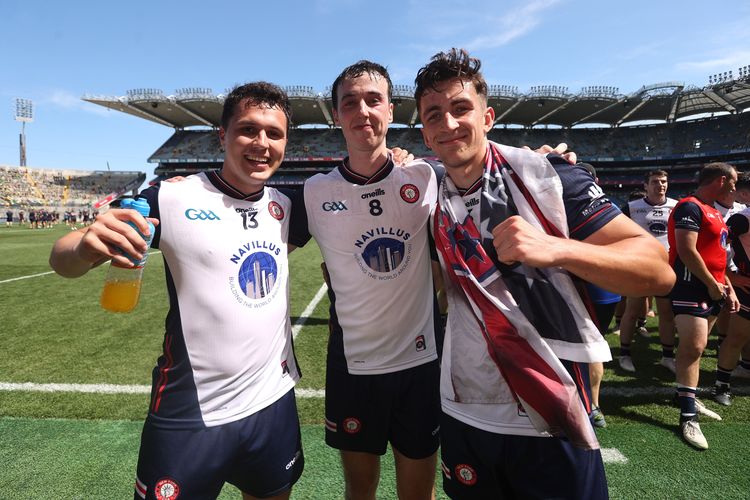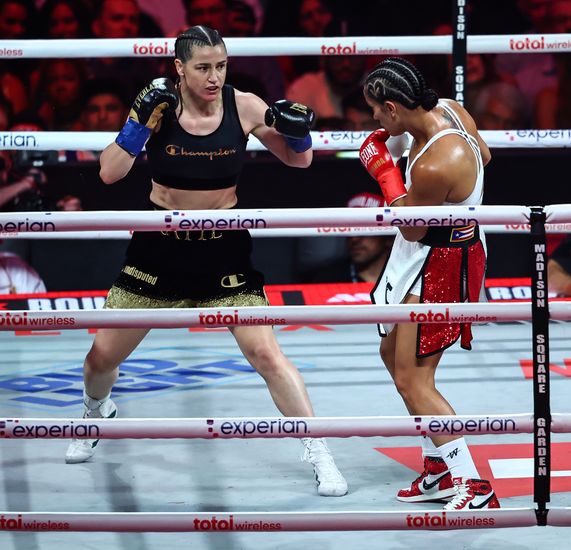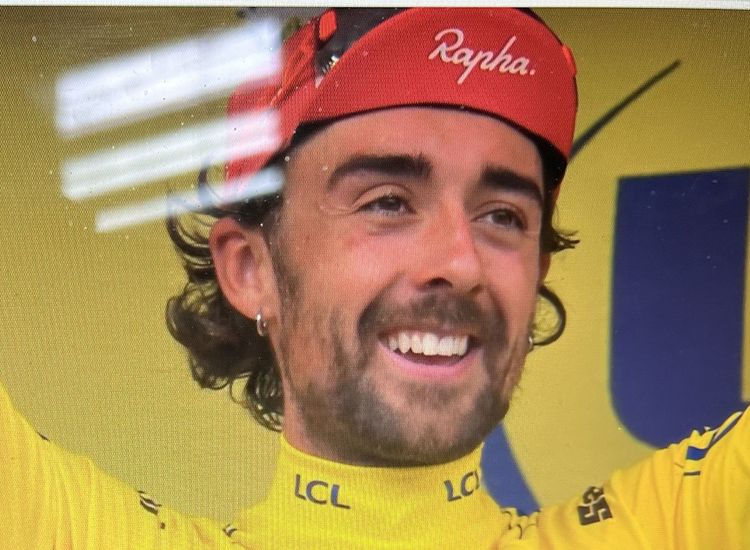Enda Kenny attaches a pin to Leo Varadkar’s lapel as Simon Coveney looks on. RollingNews.ie photo.
By Evan Short
It’s a two horse race this week to replace Enda Kenny as leader of Fine Gael and to become the next taoiseach.
The race did pause Tuesday amid the shock over the bombing and loss of life across the Irish Sea in Manchester, England.
Enda Kenny (66) announced on Wednesday of last week that he is to stand down, paving the way for a leadership contest within his party Fine Gael.
Mr. Kenny took over as leader of the party in 2002 and was first elected taoiseach in 2011. He became the first Fine Gael taoiseach to be elected to a second term in 2016.
The former school teacher from Mayo is credited with steering the republic through the economic turmoil that followed the global financial crisis.
Within hours of Kenny’s announcement, Minister for Social Protection, Leo Varadkar (38), and Minister for Housing, Simon Coveney (44), both moved to succeed Mr. Kenny.
Very quickly, Dubliner Varadkar was the bookies’ favorite and as of Tuesday morning had the support of 46 TDs and senators of the Fine Gael Parliamentary Party.
Mr. Coveney, from Cork, admitted that some leading party members who had promised him their support had switched to the Varadkar camp.
Speaking on RTÉ he said: “People make decisions in politics for all sorts of reasons and I’m not going to start judging people. My job now is to put a persuasive argument together over the next ten days to change the mind of some of those.
“When leadership contests are under way some people who know and like both candidates want to get themselves on the winning side. And I think there was a bit of that over the last few days. But I don’t blame any colleagues for that.”
Meanwhile, laying out his stall with the launch of his manifesto, Mr. Varadkar defended his proposed policy to restrict the right to strike in essential services.
“I think it would be wrong to categories it as a strike ban. It’s not that,” he said.
“What I am saying is that if a dispute is protracted and if it goes to the Labour Court and bear in mind, both the unions and the employer has to agree that if it goes to the Labour Court that should be the end of it.
“Both the unions and the employer should accept the outcome of the Labour Court. And that’s what I’m proposing.”
The two candidates will take part in meetings across the country in order to make their respective pitches to their party membership.
The bulk of the deciding vote, 65 percent of it, rests with the 73 members of the Parliamentary Party. The result will be known on June 2.









